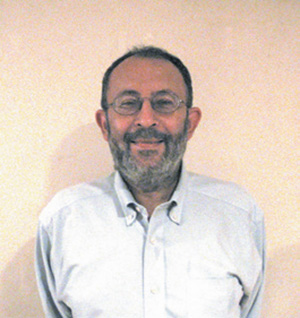
“Sanverim” (samech-nun-vav-resh-yod-mem) appears only three times in Tanach: at Genesis 19:11 and II Kings 6:18 (twice). The first is when the men who pressed Lot were smitten with “sanverim.” The second is at II Kings 6:18, concerning the men who were with Elisha. What is the meaning of this unusual word?
Rashi: blindness.
Rashbam: blindness and destruction.
Ibn Ezra: something that darkens the eye and the heart.
Radak: it is an abbreviation of “sonei reiah” (hates looking); it means “blindness.”
Elijah Levitas: someone who sees but does not understand what he sees. He is called a sanor.
Malbim: some form of distorted vision but not actual blindness.
S.D. Luzzatto: it originally meant “hates light” (sonei or).
Rabbi S.R. Hirsch: it is composed from “thorn” (“sneh”) and “light.”
Rabbi Dr. J. Hertz: temporary loss of vision.
Soncino: confused vision, seeing an object that is not there and not seeing one that is.
Evyatar Cohen: it derives from the Hebrew word for snow (“senir,” see Rashi to Deut. 3:9). The light of the sun reflected by the snow can blind people.
Hayyim Tawil: It is a loanword from the Akkadian verb “sunwurum,” “to make radiant, brighten.” In Hebrew it developed into “a blinding radiant light.” He then quotes another scholar who connected it with a different Akkadian word that meant “night-blindedness.”
In contrast to all of the above, what is found in the modern-day Koehler-Baumgartner lexicon? It means “illumination,” from the Hebrew N-R, “ner,” and it is used as a euphemism, with the samech as a prefix. (I do not recall other instances of samech used as a prefix. If there are, please tell me.)
(For much of the above material, I would like to acknowledge Rabbi Reuven Chaim Klein, “What’s in a Word?” weekly email of Oct. 25, 2018.)
*
The Arabic word awira or awar is very possibly the source of a common English word. The Hebrew word for “blind” is from the same Semitic root as Arabic awar, “one-eyed,” hence “damaged.” The Arabic word may underlie the English word “average.” “Average” seems to have originally referred to a tariff that had to be paid on imported goods, taking into account the proportion of goods that would be expected to be damaged!
*
What about the word N-F-Sh? The original concrete meaning was likely “throat, gullet,” the organ used for breathing and eating. Then it evolved into meaning “a living being, person.”
For example:
Isa. 5:14: “Sheol has opened wide its gullet and parted its mouth to a measureless gap.”
Jonah 2:6: “Water envelops me up to my throat.”
Ps. 69:2 and 124:4: “Water reached to the throat.”
Ps.105:18: “His feet were subject to fetters, an iron collar was put on his throat.”
N-F-Sh also developed into a verb: “breathe.” I will discuss this root in a future column, where I will finally explain the meaning of that difficult phrase in the Shabbat morning Kiddush, “shavat va-yinafash” (a quote from Exodus 31:17).
*
Last week I raised the issue of why the liver has a name from the root caf-bet-dalet (“cabed”). Some had suggested that this was based on the concept of its “heaviness,” but I was a bit skeptical. My son Shaya had learned about shechita in his semicha class at YU, with hands-on demonstrations. He read my column and then pointed out to me that the liver was indeed a very heavy organ in large animals. It is very dense and much heavier than it looks. I then saw that Wikipedia called it “the heaviest internal organ and largest gland in the human body.” So now I am much more open to accepting the connection between liver and C-B-D=heavy!
By Mitchell First
Mitchell First is a personal injury attorney and Jewish history scholar. He can be reached at [email protected]. His vision is very good, and he breathes very well, but he does not eat liver.
For more articles by Mitchell First, and information on his books, please visit his website at rootsandrituals.org.








